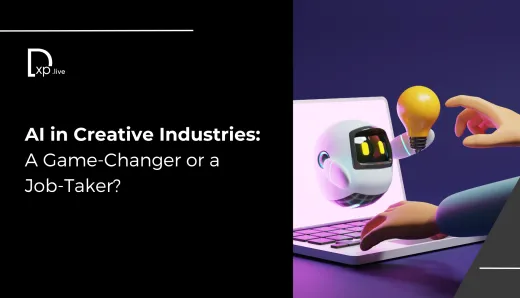The Quantum Leap: How Quantum Computing Will Revolutionize Human Experience and Customer Interaction

The human experience is at the core of every business interaction. As companies strive to meet rising customer expectations, executives have been turning to AI and big data for insights and personalization. But what if I told you that we are on the verge of a quantum leap in how businesses engage with customers and elevate their experience?
Quantum computing, the latest frontier in technology, is set to disrupt not just industries, but also how we understand and design human experiences. In this opinion piece, we’ll explore how quantum computing holds the potential to revolutionize customer interaction, offering unprecedented opportunities for personalization, predictive analytics, and engagement. For US-based C-suite executives, quantum technologies present not only an opportunity but also a mandate to rethink customer experience (CX) strategy.
1. Beyond Classical AI: Quantum-Powered Personalization
Artificial intelligence (AI) has enabled organizations to personalize interactions at scale, but AI is still constrained by classical computing limits. Today’s systems are built on binary data, which while powerful, can only analyze so much information at a time. This limitation results in generalized, often impersonal, insights despite vast data sets.
Quantum computing, however, operates on quantum bits (qubits), which can exist in multiple states simultaneously. This enables quantum systems to process massive datasets exponentially faster than classical computers. For customer experience, this means quantum computing can analyze more data in real-time, allowing for hyper-personalization. Imagine tailoring every interaction, product recommendation, and marketing campaign to the individual customer’s preferences and behaviors in ways we’ve never seen before.
DX Opinion Point: C-suite executives need to start thinking about quantum-powered AI as the next stage of personalization. This level of individualized experience will set companies apart in a competitive landscape, making quantum a critical investment for businesses serious about customer experience innovation.
2. Revolutionizing Predictive Analytics and Customer Insights
Today’s predictive analytics help companies anticipate customer behavior, but they are bound by the processing power of classical systems. With quantum computing, the possibilities are staggering. Quantum algorithms can process enormous amounts of data simultaneously, providing not just more accurate predictions, but also deeper insights into customer preferences, behaviors, and pain points.
Quantum technologies can elevate predictive analytics by identifying patterns and trends that classical systems might miss. For instance, instead of waiting for an issue to arise, quantum-powered insights could alert you to potential problems or churn risks before they happen. Additionally, it could lead to predictive models that provide a deeper understanding of how customers’ needs will evolve over time.
DX Opinion Point: For US-based C-suite executives, integrating quantum-enhanced predictive analytics will be key to staying ahead of customer trends. This foresight will allow businesses to proactively improve customer satisfaction, optimize product offerings, and adapt to market changes in real-time.
3. Quantum’s Role in Real-Time, Human-Centered Interactions
In a world where speed and efficiency are paramount, quantum computing offers a massive advantage. The technology can process data instantly, meaning companies will be able to deliver real-time responses tailored to the customer’s immediate needs.
For example, consider a customer interacting with a brand online or through a chatbot. Quantum AI could provide instant, context-aware recommendations or solutions based on the customer’s preferences, behavior, and even tone of conversation—all within milliseconds. This real-time responsiveness takes customer interactions to a new level, offering seamless experiences that feel more human than ever before.
DX Opinion Point: Real-time customer interaction is the next frontier of CX, and quantum technology is the key to unlocking it. Businesses that adopt this capability will see a significant leap in customer satisfaction and brand loyalty, leaving those who fail to adapt in the dust.
4. The Ethical Considerations of Quantum-Powered Human Experience
As with any new technology, quantum computing comes with ethical concerns—particularly when it comes to human experience. Quantum technologies will enable companies to collect and analyze more personal data than ever before, raising questions about privacy, consent, and data security.
For C-suite executives, this means walking a fine line between utilizing quantum’s immense power and protecting customer trust. Transparency will be critical, as well as implementing strong data governance frameworks that respect customer privacy. Executives will need to ensure their quantum-powered systems are built with ethical considerations at the forefront, creating trust with customers while scaling their technological capabilities.
DX Opinion Point: It’s essential for companies to recognize the ethical implications of quantum computing. By being transparent and placing privacy at the center of their CX strategies, businesses can build trust and maintain a positive brand reputation while harnessing the power of quantum technologies.
5. Rethinking CX Strategies in the Quantum Age
Quantum computing isn’t just an incremental change—it’s a paradigm shift. As the technology matures, it will redefine the foundation of customer experience, allowing companies to provide faster, smarter, and more personalized interactions at a scale previously unimaginable.
For C-suite executives, this means that now is the time to start planning for quantum. While widespread commercial use is still a few years away, the businesses that prepare now will be poised to gain a first-mover advantage. Forward-thinking leaders should invest in quantum research and development, explore partnerships with quantum technology providers, and begin experimenting with quantum-enhanced solutions to future-proof their CX strategies.
DX Opinion Point: Waiting until quantum becomes mainstream could leave businesses playing catch-up. Start exploring quantum technologies today to position your company as a leader in delivering unparalleled human-centered experiences in the near future.
6. Scaling Quantum for All Customer Interactions
Quantum computing has the potential to scale customer interactions across all touchpoints—from marketing and sales to support and service. For example, quantum-enhanced chatbots could provide more accurate responses to customer queries, while quantum-powered AI can handle complex multi-channel interactions seamlessly.
As this technology scales, it will become an integral part of omnichannel strategies, ensuring that each customer interaction—regardless of platform or device—delivers a consistent and personalized experience.
DX Opinion Point: US-based C-suite executives should aim to integrate quantum computing into their omnichannel strategies. The ability to provide consistent, personalized experiences across all customer touchpoints will soon become a defining factor in brand loyalty and customer retention.
Quantum Is the Future of CX
Quantum computing is no longer just a theoretical concept; it is quickly becoming a reality with profound implications for customer experience. From hyper-personalization to real-time interactions, quantum technologies will redefine how companies engage with customers, making interactions more human, more efficient, and more impactful.
For C-suite executives, the quantum revolution presents an extraordinary opportunity—but it also requires foresight, investment, and a commitment to ethical practices. Now is the time to explore quantum technologies, preparing your business to not only meet but exceed customer expectations in the years to come.
Are you ready to make the quantum leap in customer experience? The future starts now.
Interested in reading more of our editorial/ opinion insights? Click here.




